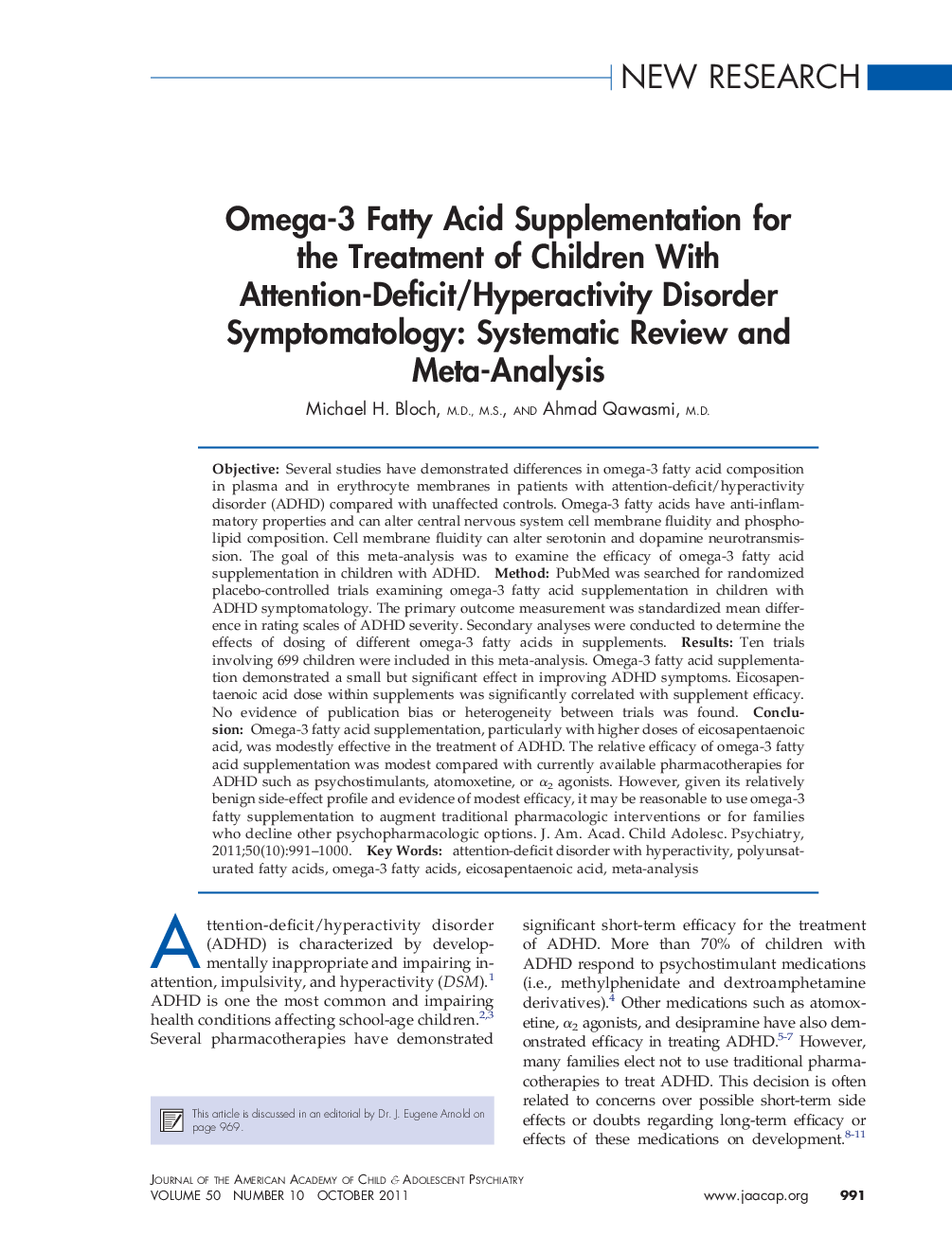| کد مقاله | کد نشریه | سال انتشار | مقاله انگلیسی | نسخه تمام متن |
|---|---|---|---|---|
| 324671 | 1432983 | 2011 | 10 صفحه PDF | دانلود رایگان |

ObjectiveSeveral studies have demonstrated differences in omega-3 fatty acid composition in plasma and in erythrocyte membranes in patients with attention-deficit/hyperactivity disorder (ADHD) compared with unaffected controls. Omega-3 fatty acids have anti-inflammatory properties and can alter central nervous system cell membrane fluidity and phospholipid composition. Cell membrane fluidity can alter serotonin and dopamine neurotransmission. The goal of this meta-analysis was to examine the efficacy of omega-3 fatty acid supplementation in children with ADHD.MethodPubMed was searched for randomized placebo-controlled trials examining omega-3 fatty acid supplementation in children with ADHD symptomatology. The primary outcome measurement was standardized mean difference in rating scales of ADHD severity. Secondary analyses were conducted to determine the effects of dosing of different omega-3 fatty acids in supplements.ResultsTen trials involving 699 children were included in this meta-analysis. Omega-3 fatty acid supplementation demonstrated a small but significant effect in improving ADHD symptoms. Eicosapentaenoic acid dose within supplements was significantly correlated with supplement efficacy. No evidence of publication bias or heterogeneity between trials was found.ConclusionOmega-3 fatty acid supplementation, particularly with higher doses of eicosapentaenoic acid, was modestly effective in the treatment of ADHD. The relative efficacy of omega-3 fatty acid supplementation was modest compared with currently available pharmacotherapies for ADHD such as psychostimulants, atomoxetine, or α2 agonists. However, given its relatively benign side-effect profile and evidence of modest efficacy, it may be reasonable to use omega-3 fatty supplementation to augment traditional pharmacologic interventions or for families who decline other psychopharmacologic options.
Journal: Journal of the American Academy of Child & Adolescent Psychiatry - Volume 50, Issue 10, October 2011, Pages 991–1000